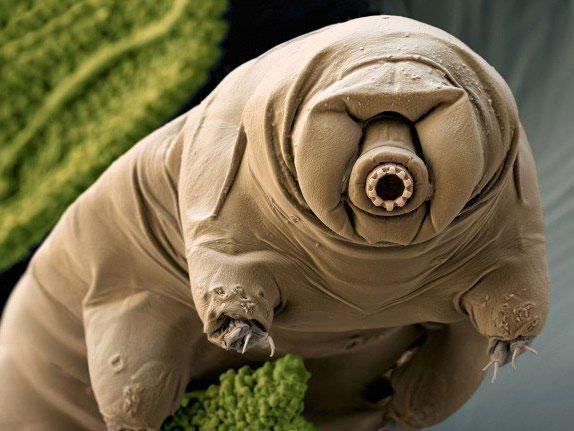The Independent's journalism is supported by our readers. When you purchase through links on our site, we may earn commission.
Earth's last survivors of an apocalyptic event will be water bears
‘Although nearby supernovae or large asteroid impacts would be catastrophic for people, tardigrades could be unaffected’

Scientists have identified what they believe will be the last form of life on Earth that will survive until the sun dies.
Long after humans on the planet have been wiped out, “water bears”, a tiny, eight-legged animal officially called a tardigrade, will persist, the researchers decided.
Despite a range of cataclysmic events that could put an end to our species – such as a large asteroid strike or a nearby exploding star – none would be serious enough to completely eradicate all life.
And the tardigrade deemed to be Earth’s ultimate survivor.
The famously hardy and arguably quite cute animal, which grows to a maximum length of half a millimetre, can live for up to 30 years without food or water, endure temperatures of up to 150 degrees and is so at home in the frozen vacuum of space that it has been known to mate.
One of the researchers, Dr David Sloan, of Oxford University, said: “A lot of previous work has focused on 'doomsday' scenarios on Earth – astrophysical events like supernovae that could wipe out the human race.
“Our study instead considered the hardiest species – the tardigrade. As we are now entering a stage of astronomy where we have seen exoplanets and are hoping to soon perform spectroscopy, looking for signatures of life, we should try to see just how fragile this hardiest life is.
“To our surprise we found that although nearby supernovae or large asteroid impacts would be catastrophic for people, tardigrades could be unaffected.
“Therefore it seems that life, once it gets going, is hard to wipe out entirely. Huge numbers of species, or even entire genera may become extinct, but life as a whole will go on.”
His Oxford colleague, Dr Rafael Alves Batista, contrasted the tardigrade’s hardiness with human’s relative fragility.
“Without our technology protecting us, humans are a very sensitive species,” he said.
“Subtle changes in our environment impact us dramatically. There are many more resilient species on Earth. Life on this planet can continue long after humans are gone.”
The existence of the tardigrade also gives hope for the search for extra-terrestrial life, Dr Alves Batista said.
“Tardigrades are as close to indestructible as it gets on Earth, but it is possible that there are other resilient species examples elsewhere in the universe,” he said.
“In this context there is a real case for looking for life on Mars and in other areas of the solar system in general. If tardigrades are Earth’s most resilient species, who knows what else is out there.”
The study, described in the journal Scientific Reports, considered three possible cataclysmic events: an asteroid impact, a supernova and a gamma ray burst.
Only a dozen objects, including the dwarf planet Pluto, are big enough that they would cause Earth’s oceans to boil if they hit, but none are on a trajectory to intersect with our orbit.
The researchers concluded the chance of a supernova, an exploding star, being big enough to kill all life here within our sun’s lifetime was negligible.
Gamma-ray bursts are brighter than supernovae but would need to be no more than 40 light years away to pose a existential threat to all life on Earth. The risk was again considered to be unlikely.
Join our commenting forum
Join thought-provoking conversations, follow other Independent readers and see their replies
Comments
Bookmark popover
Removed from bookmarks